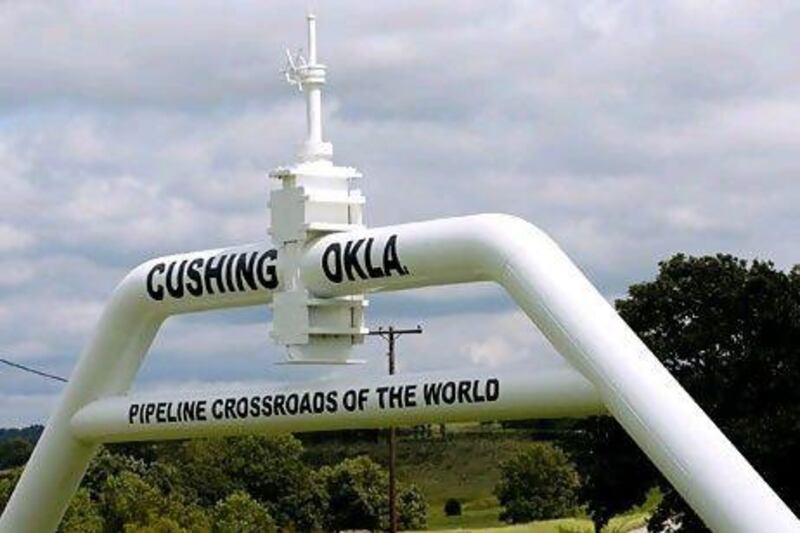Oil traded on the New York Mercantile Exchange dropped to a five-month low at the start of this week and is expected to fall further on rising inventories and gloomy economic data out of Europe.
Crude prices in the United States declined to US$94.78 a barrel on Monday, the lowest since December 19.
Fears of economic decline in the euro zone and the US, and the curtailment of exports out of Iran have prompted Opec producers, Saudi Arabia in particular, to increase crude production. As global demand has slackened, importing countries have been able to build up their inventories, causing oil prices to erode.
In the US, inventories are likely to rise to the highest level in 21 years, as a survey by Bloomberg forecasts an increase of 1.5 million barrels to 381 million barrels, prior to the release of official data set to be published today.
The supply glut in the US is compounded by infrastructure bottlenecks that prevent crude leaving the oil hub in Cushing, Oklahoma - a long-term price depressant that has left West Texas Intermediate (WTI) oil trading below Brent, the European benchmark.
Unlike WTI, Brent is still trading above the US$100 mark. But slackening demand is driving down prices in Europe, too, and the euro-zone economy contracted in the first quarter for the first time since late 2009.
Crude prices had spiked at the end of last year and continued their ascent at the beginning of this year as geopolitical tensions rose in parts of the Middle East.
Saddled with a fresh round of sanctions aimed at undermining the payments system for its crude exports, Iran repeatedly threatened to block the Strait of Hormuz, the waterway that acts as choke point for crude coming out of the Gulf.
Fears that the absence of Iranian crude would lead to a shortage in the world markets further boosted prices.
A rapprochement between the western powers and Iran has led to the resumption of talks over its controversial nuclear programme, easing market concerns.





